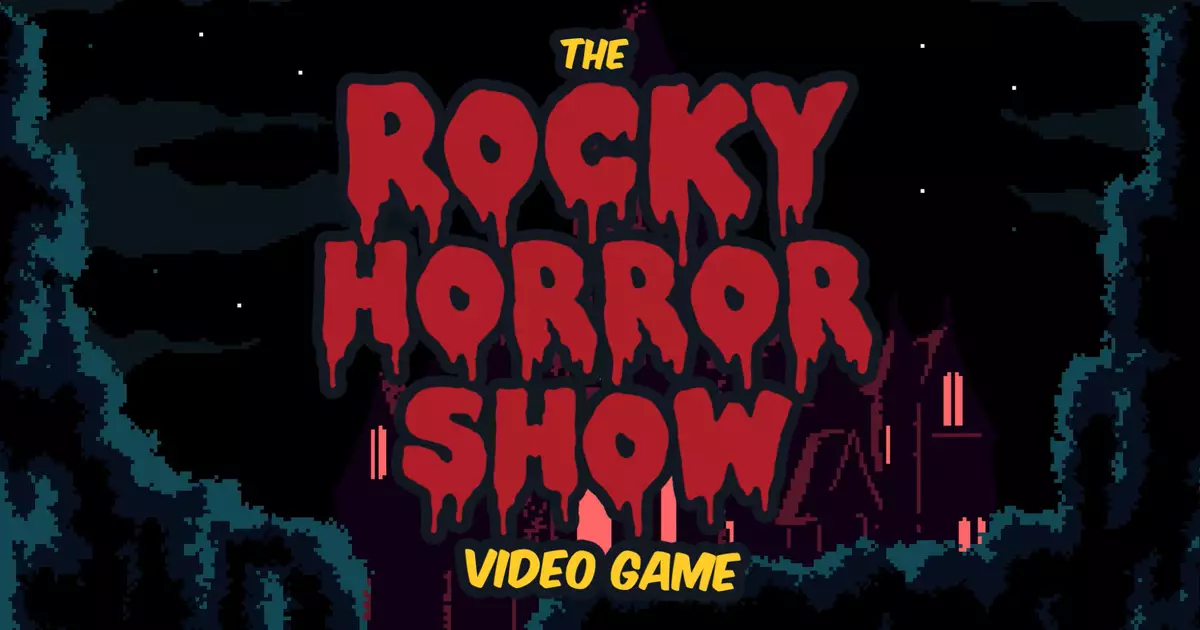Reflecting on the phenomenon that is “The Rocky Horror Show” invites a nostalgic journey, one that often stirs up a mix of playful reverie and cultural critique. My own experience of this cult classic dates back to a thrilling fan screening in 2005, an event that transformed a relatively simple film-watching experience into an intoxicating blend of audience participation and outrageous costumes. With the room buzzing with energy, patrons donned flamboyant attire, from suspenders to feather boas, each individual embodying the joyously camp spirit that the show profoundly celebrates.
Yet, what lingers in my mind isn’t solely the costumes or the catchy tunes, but rather the unique dynamics that unfold in these screenings. It’s a full-fledged experience—but it is equally a demonstration of a subculture deeply embedded within the fabric of queer resistance and liberation. The overall atmosphere pulsates with life; it’s as if the audience itself moves in rhythm with Frank-N-Furter’s high-octane antics and the absurd exploits of Brad and Janet.
“The Rocky Horror Show” stands as a remarkable testament to 1970s counterculture, celebrating themes of sexual freedom and defiance through its peculiar narrative. The musical offers a vibrant pastiche of B-movie aesthetics, encapsulating the normality of the lead characters, who find themselves in a subversive universe presided over by the enigmatic mad scientist, Dr. Frank-N-Furter, played masterfully by Tim Curry. Indeed, Curry’s portrayal in this role marked a distinctive high point in his career, overshadowing even his forays into digital warfare with Command and Conquer.
One cannot help but wonder about the work’s enduring legacy in contemporary society. Its themes are no longer relegated to the fringes but correlate closely with ongoing conversations surrounding gender fluidity and sexual liberation. Many fans, like myself back in that 2005 screening, find deeper meanings as we interact with the film and each other, reinforcing a sense of community through shared humor, rebellion, and acceptance.
The interactive nature of screenings, particularly the notorious catchphrases yelled at pivotal moments, adds another layer of enjoyment. One notable scene, where the castle lifts off into the heavens, is punctuated by the collective outcry of “it’s just a model!”—an echo from the audience prior that cements their camaraderie. However, amidst this lively chaos, I once attempted to interject with a Monty Python reference that went thoroughly unappreciated.
It’s interesting to reflect on that moment, not merely as an amusing anecdote but as a commentary on the boundaries of intertextuality in crowded spaces. An innocent gesture met with gentle admonishment from a mysterious lady in the background—her sigh and eye-roll revealing an unspoken expectation to adhere to communal norms. I found myself caught between the passionate energy of the audience and my personal desire to inject a distinct layer of humor to the experience, illustrating how the discourse in such events can shape our self-perception and interactions.
In a delightful turn of events, “The Rocky Horror Show” is earning yet another adaptation, this time in the form of a video game by FreakZone Games. As someone with a penchant for retro gaming culture, I find this development immensely intriguing. The trailer hints at a retro platform game infused with the musical’s iconic repertoire presented in charming chiptune renditions, evoking the nostalgia of my childhood gaming experiences.
The blurb tantalizingly invites players to “jump to the left and dodge to the right,” echoing the musical’s central themes while crafting a new interactive dimension. Information remains scarce; specifics about beloved scenes, such as the aforementioned flying castle, are yet to be disclosed. The impending release of this adaptation doesn’t just spotlight a beloved classic; it presents an opportunity for a new generation to engage with the idiosyncratic spirit of the show.
As I await this new extraction of the Rocky Horror experience, I can’t help but stir in mixed emotions, an echo of past regrets intertwined with excitement for the new. Perhaps it signifies not merely entertainment but a lingering connection to a time when humor, community, and self-expression conquered the boundaries of traditional media. Whether through games, screenings, or lively remembrances, “The Rocky Horror Show” continues to be a delightful testament to the power of camp and rebellion in popular culture.


Leave a Reply